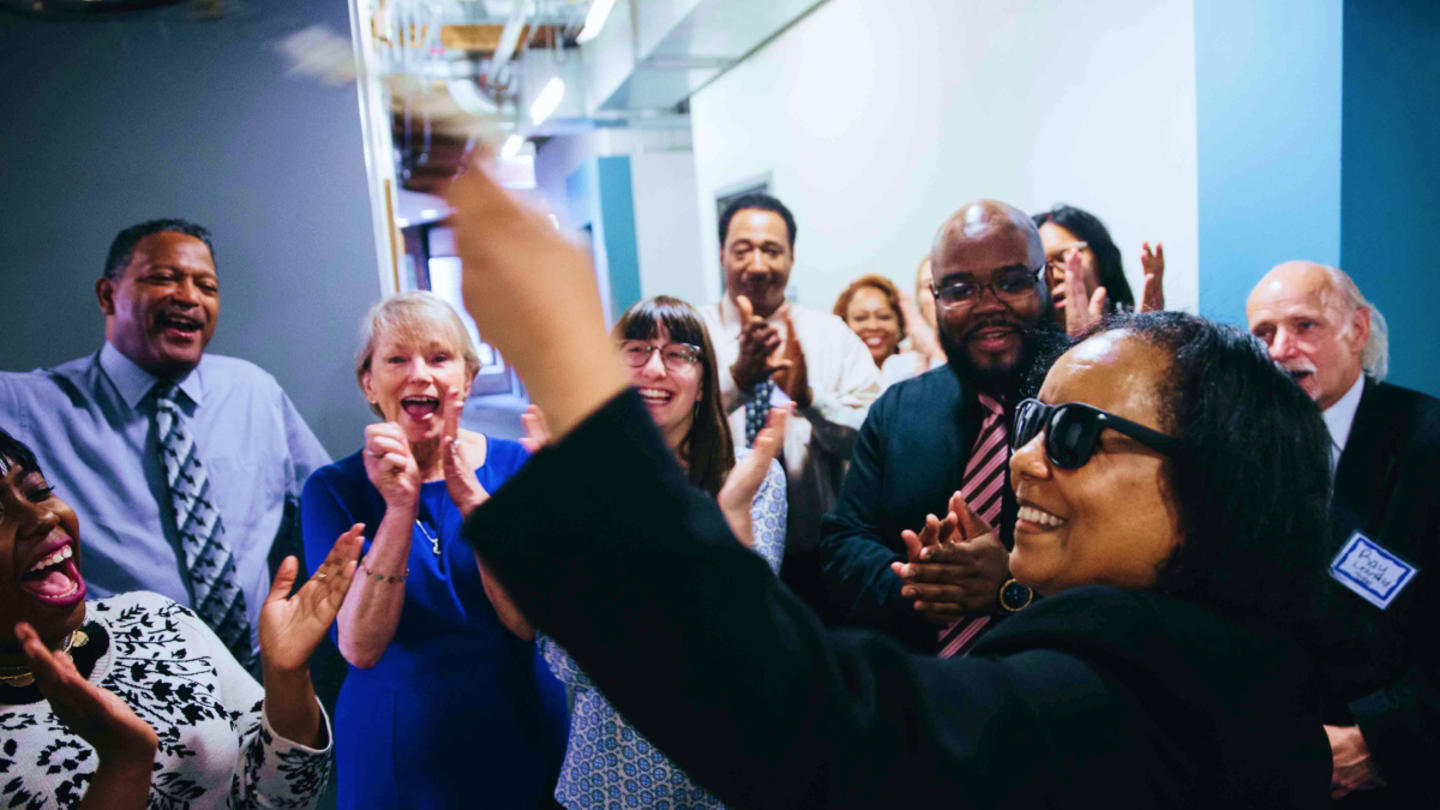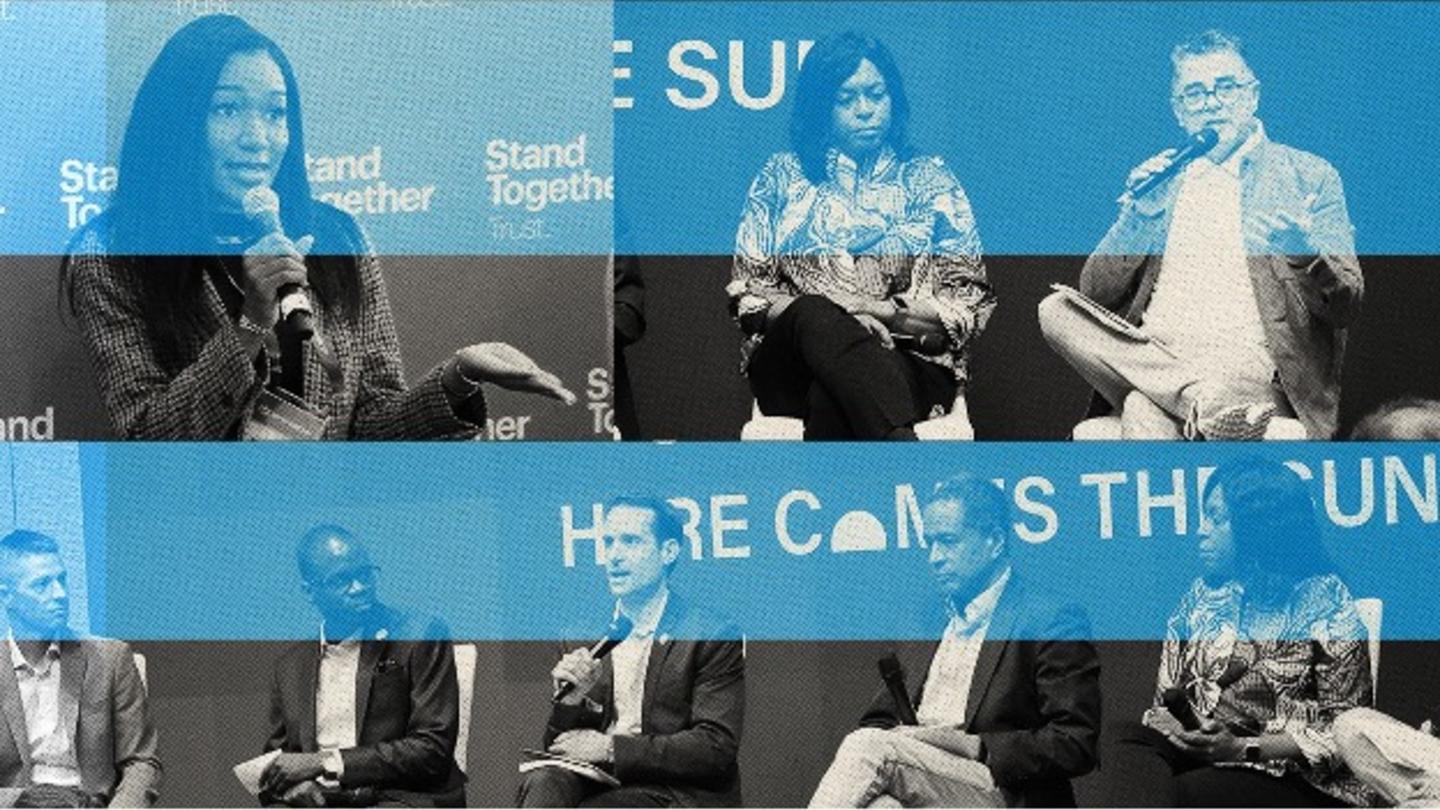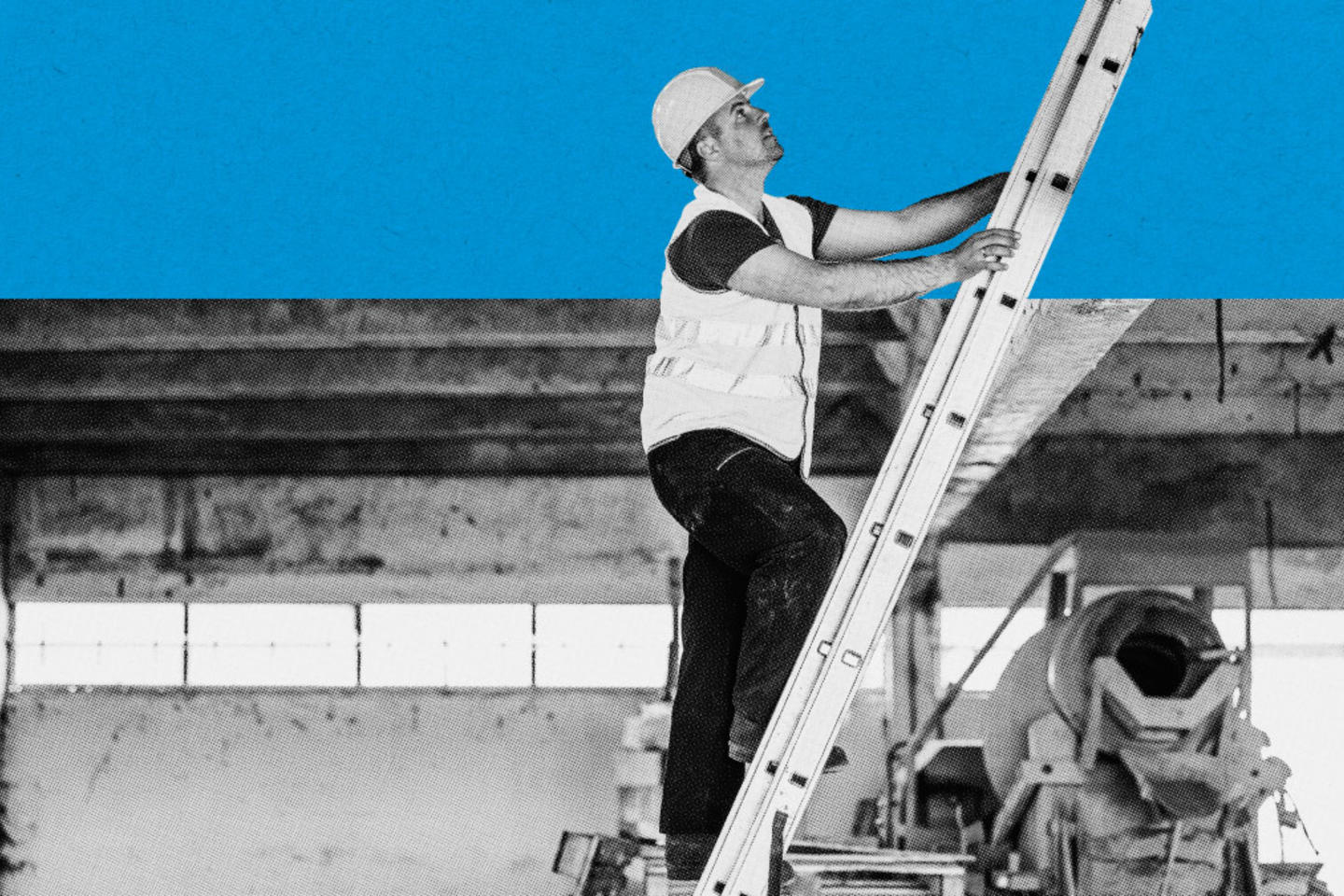It was an Uber driver who first gave Connor Diemand-Yauman and Rebecca Taber Staehelin the idea that changed their paths.
At the time, Diemand-Yauman and Staehelin were both working at Coursera, helping some of the universities make their courses and content available online for free. But there was a glaring issue.
“We were enamored with the vision of universal access to education,” Diemand-Yauman recalled. “Yet we soon learned that access often doesn’t translate into opportunity.”
While debating this together in the back of an Uber one day, he remembered, “The Uber driver overheard our discussion, turned around and said ‘I completed a Coursera course, but then nothing happened.’ He was still stuck in low-wage work.”
Online education has existed for decades, but without professional development, learners are left without a way to apply their knowledge or create a professional trajectory built on their strengths. Without this, a life of upward mobility and fulfillment may feel out of reach. Recognizing this, Diemand-Yauman and Staehelin founded Merit America, a nonprofit that helps Americans transform their lives with careers that pay better — and bring more personal fulfillment.
Merit America combines online skills training with tailored coaching to empower learners of all ages in all sectors across the country. The goal isn’t just a higher salary. “It’s to help connect people to jobs that tap into their unique gifts and talents,” said Diemand-Yauman. “Ultimately, the hope is that they end up with more fulfilling work.” That means a workforce that benefits from a larger, more diverse talent pool as well.
“We pair online learning with best-in-class coaching to help folks access upwardly mobile careers,” he said.
Learning and coaching combine to create a ‘why’
Online learning can only go so far. Employees and employers are looking for something more.
In addition to technical training, which allows participants to earn certificates in various skill sets, Merit America offers professional development counseling. This ranges from resume writing to interview preparation to encouragement in self-confidence and presentation. These tools make the critical difference between an educational experience that is soon forgotten and one that can transform a life.
“Online learning without coaching is like a car without gas,” Diemand-Yauman explained. “You can offer access to the world’s best content, but folks need help knowing what courses to take, how to complete them, and how to use them to land a new job.”
Merit America begins with career coaching that helps learners prepare to apply for roles and continues with the help of a job success team that connects them directly with potential employers. Each participant is paired with a coach who meets with them one-on-one, honing in on specific areas the participant hopes to improve in, and giving feedback while encouraging accountability.
Although the careers that Merit America learners usually pursue are in technical training and support, Diemand-Yauman emphasized that they are not a technical training firm.
Their ultimate goal is to empower learners with the resources needed to pursue any career trajectory, so long as it supports their strengths and goals. Through coaching learners work to identify areas they are strongest in, skills they have that are particularly useful, and careers they are most interested in.
“We are focused on giving learners the skills they need for whatever career that will allow them to self-actualize and build an upwardly mobile career, both for themselves and for their families,” Diemand-Yauman said. “We need to be as dynamic as the labor market. We are constantly asking: ‘Which are the right learning tracks? Which additional supports do learners need to be successful? How can we be more impactful, sustainable, and scalable?’ We go where opportunity lies for our learners.”
The benefits are felt by both employers and employees. Making professional development accessible to a broader range of learners means a bigger talent pool for companies to draw from. Not only do employers gain applicants with a broader range of experiences and skill sets, but they also are strengthened by employees who have a heightened sense of intention, motivation, and purpose in their work.
Sign up for Stand Together's Rethinking Work & Learning newsletter to get the latest stories, ideas, and trends on the future of employment.
Empowerment starts here: Meeting people where they are
Merit America’s coaching creates a bespoke experience. Each coach is intentionally paired with a learner based on the learner’s specific needs. The coach then focuses on supporting the learner’s unique strengths and goals.
Part of this is working with learners to explore their confidence and sense of purpose. Doing so can help learners realize they already possess the drive, skill, and strength to pursue their intended careers. They just need the support and infrastructure to allow them to do so. Diemand-Yauman points out that Merit America doesn’t create talent in learners. It simply paves the road to allow them to access opportunity.
“We say at Merit America that it’s our learner’s job to run the race, and we’re on the sidelines handing out the Gatorade,” he described. “They’re the ones who are doing the inspiring work. They’re the ones who are hitting the pavement and showing up every day. Our job is to provide the support they need to be successful, both within the program and then outside of it.”
Building an alumni community that offers a lifetime of support
According to Diemand-Yauman, Merit America is less than a month away from becoming the first nonprofit to reach $1 billion in wage gains for learners. Most learners (81%) complete the program in full, and a new analysis from the University of Virginia found that alumni reach an average wage increase of $24,000 at least three months after finishing the program.
These numbers indicate much more than just heightened income. They allude to a shift in economic class for many participants, and with it, the probability of family mobility for decades, not just years, to come.
“We intentionally select jobs that have high upward mobility and yield a living wage,” Diemand-Yauman said. “Our goal is to put our learners on the first rung of the ladder to the middle class, after which they have agency to take the next step and continue to craft a career that is aligned with their interests, passions, and needs. It’s our goal that this sense of agency, empowerment, and self-actualization persist long after the program, so folks can access upwardly mobile careers that support themselves, their families, and their communities.”
Merit America intends to stick with participants along that lifelong road. The organization is currently focused on investing in measurement and evaluation to understand the long-term trajectory of alumni, who support and motivate each other throughout their careers. The skills participants gain at Merit America are just the beginning, meant to empower them to pursue a lifelong journey of fulfillment and purpose.
“It’s about unlocking our learners and spurring their path to self-actualization,” Diemand-Yauman said. “It is about bottom-up empowerment and ensuring that they have the tools they need to be successful — not only in the context of Merit America but for a lifetime.”
Merit America is supported by Stand Together Trust, which provides funding and strategic capabilities to innovators, scholars, and social entrepreneurs to develop new and better ways to tackle America’s biggest problems.
Learn more about Stand Together’s efforts to transform the future of work, and explore ways you can partner with us.

Some people believe a fulfilling job is out of their reach. It’s not true.

We need a system of lifelong learning that aligns with the needs of both students and employers.

Three simple changes would build a system where people and businesses reach their full potential.

Apprenticeships aren’t just for the trades. Innovators are expanding this proven talent-sourcing method.
